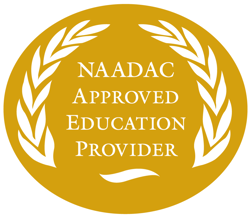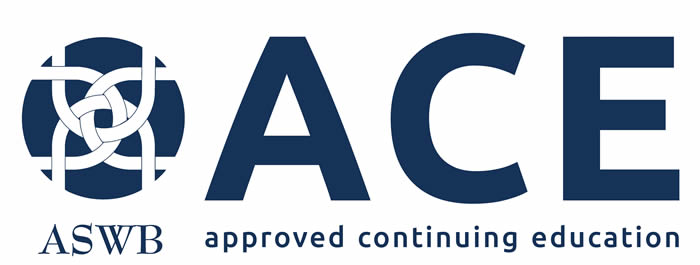
COURSE CREDITS & HOURS
16 CE Credits for Licensed Professional Counselors, Licensed Marriage & Family Therapists, Social Workers, Psychologists, etc.COURSE FEES
TARGET AUDIENCE
PROGRAM PURPOSE
- Tele-Supervision: Ethical Practices in Clinical Supervision
COVID and Post-COVID conditions have presented challenges for counselors-in-training and clinical supervisors. States have made various provisions to accommodate the profession while striving to maintain protective standards. Counselor educators and site supervisors work collaboratively to protect the integrity of the clinical experience and to provide opportunities for residents and counselors-in-training. This seminar will examine some of the challenges nation-wide and identify best practices. Ethical and legislative issues will be presented and include tele-supervision liabilities, limitations and also effectiveness.
- Key Clinical Factors and Considerations with Military and Veterans
Military service members, their families, and veterans have unique needs that require a culturally competent approach to services and mental health treatment. Studies show that community providers are not as culturally competent with the military population as VA and DOD clinicians. With critical mental health access shortages in the Department of Veterans Affairs (VA) and Department of Defense (DOD), it is essential to increase the military population's access to timely and culturally competent mental health services. This 120-minute training will provide attendees with an overview of the cultural differences working with military versus civilian populations. We will delve into the key mental health factors that influence and correlate with the military service, such as military training and combat operations; substance use and misuse; suicide, family stressors and combat related stress and trauma. Training will wrap up with the examination of core interventions to enhance and augment treatment efficacy.
- Cognitive-Behavioral Therapy for Individuals with PTSD and a Substance Use Disorder
This workshop will provide an overview of the core concepts of Cognitive-Behavioral Therapy (CBT) and discuss its applicability to dually diagnosed individuals with Post-Traumatic Stress Disorder (PTSD) and Substance Use Disorders (SUD). Case examples and other practice applications of CBT techniques will acquaint participants with intervention strategies to help clients acquire more effective skills for managing co-occurring PTSD and SUDs.
- Don't Bleed On The Client: Intentional Self-Care
This workshop is designed to enhance the work of mental health clinicians, practitioners, educators, ministry, and social services. To be the best clinician and educator you can be is a journey of skill development, insight enhancement, and self-awareness. With the lens of whole-person health care, we will explore personal areas of growth and awareness regarding implicit bias and its impact in the therapeutic milieu and the lives of our clients.
- Dream Work in Group Therapy: An Experiential Voyage
Dreams has been acknowledged as meaningful to our existence and growth for centuries, and more recently as relevant tools used for research in fields such as psychology and neuroscience. Dreams are the brain's way of sorting through information. Studies about the ‘resting brain’ suggests it retrieves this information, digests, and learns from it in a "consequence free zone where the brain can practice social and behavioral strategies." In the 'gold standard ' book on dream interpretation the father of psychoanalysis, Sigmund Freud, suggests that dreams are a road map to the unconscious. Other scholars suggest that dreams reflect a person’s innermost desires/struggles, and that our minds create images/stories to manage all this activity (Goldman). Integrating dreams in group therapy is a valuable tool for self-empowerment. For over 15 years, I have found Dream Work in group therapy to be a trauma-informed and creative way to engage participants looking to gain awareness and greater understanding for self-empowerment and change. In this experiential workshop, participants will review a dream and use an effective model to demonstrate how dreams can generate self-empowerment and behavior change by exploring possibilities in the face of ambivalence and self-doubt.
- Integrated Treatment: What? Why? and How?
Substance disorders are linked with psychiatric or mental disorders and symptoms in ways that can include masking a mental illness which can keep a person from receiving appropriate and effective treatment. Many practitioners find it challenging to identify where a substance disorder stops and psychiatric disorder begins. What comes first, the chicken or the egg? This workshop will describe integrated treatment, its benefits and barriers, and how to utilize the integrated dual disorder treatment model in the treatment of co-occurring mental health and substance use disorders.













 Comprehensive Addiction & Psychological Services, LLC (CAPS) has been approved by NBCC as an Approved Continuing Education Provider, ACEP No. 6918. Programs that do not qualify for NBCC credit are clearly identified. Comprehensive Addiction & Psychological Services, LLC (CAPS) is solely responsible for all aspects of the programs.
Comprehensive Addiction & Psychological Services, LLC (CAPS) has been approved by NBCC as an Approved Continuing Education Provider, ACEP No. 6918. Programs that do not qualify for NBCC credit are clearly identified. Comprehensive Addiction & Psychological Services, LLC (CAPS) is solely responsible for all aspects of the programs.
 Comprehensive Addiction & Psychological Services, LLC (CAPS), is a NAADAC Approved Education Provider, NAADAC Provider #137906. Comprehensive Addiction & Psychological Services, LLC (CAPS) is responsible for all aspects of its programing.
Comprehensive Addiction & Psychological Services, LLC (CAPS), is a NAADAC Approved Education Provider, NAADAC Provider #137906. Comprehensive Addiction & Psychological Services, LLC (CAPS) is responsible for all aspects of its programing.
 Accreditation: Continuing Education (CE) credits for psychologists are provided through the co-sponsorship of the American Psychological Association (APA) Office of Continuing Education in Psychology (CEP). The APA CEP Office maintains responsibility for the content of the programs.
Accreditation: Continuing Education (CE) credits for psychologists are provided through the co-sponsorship of the American Psychological Association (APA) Office of Continuing Education in Psychology (CEP). The APA CEP Office maintains responsibility for the content of the programs.
 As a Jointly Accredited Organization, Continuing Education, Inc. is approved to offer social work continuing education by the Association of Social Work Boards (ASWB) Approved Continuing Education (ACE) program. Organizations, not individual courses, are approved under this program. Regulatory boards are the final authority on courses accepted for continuing education credit. Social workers completing this course receive 16 Clinical continuing education credits.
As a Jointly Accredited Organization, Continuing Education, Inc. is approved to offer social work continuing education by the Association of Social Work Boards (ASWB) Approved Continuing Education (ACE) program. Organizations, not individual courses, are approved under this program. Regulatory boards are the final authority on courses accepted for continuing education credit. Social workers completing this course receive 16 Clinical continuing education credits.















